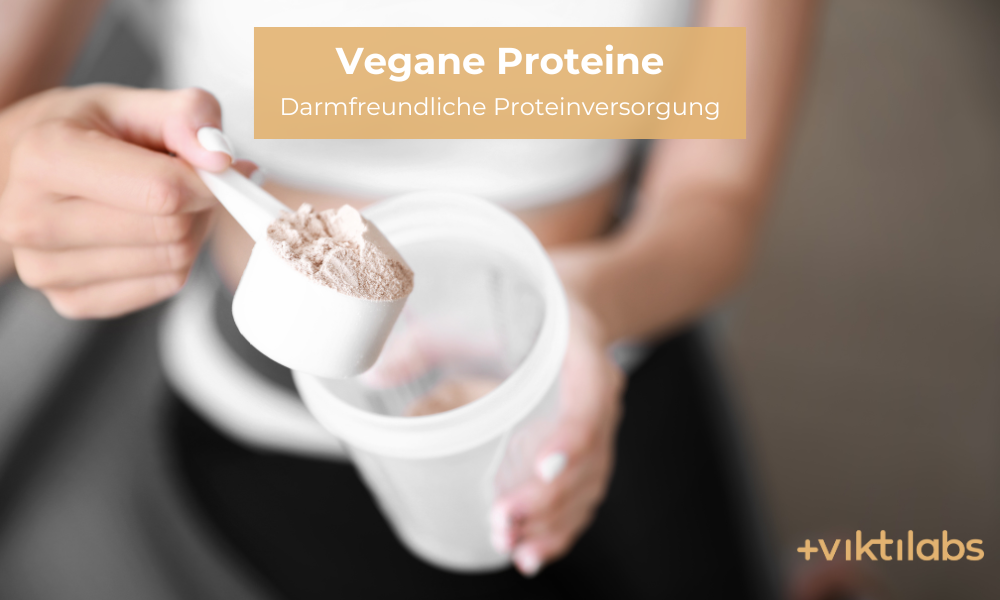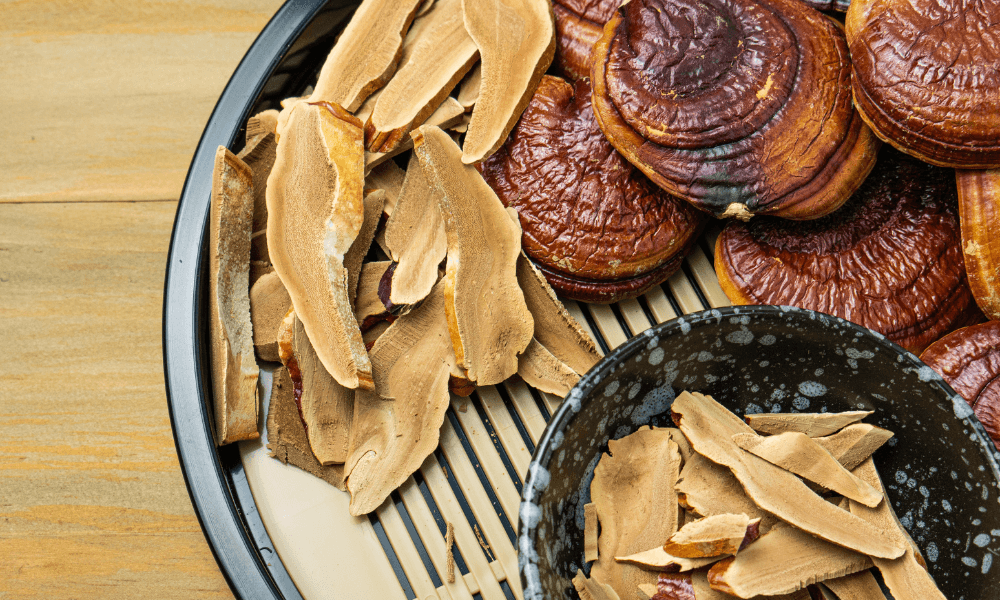Latest posts
Magazine
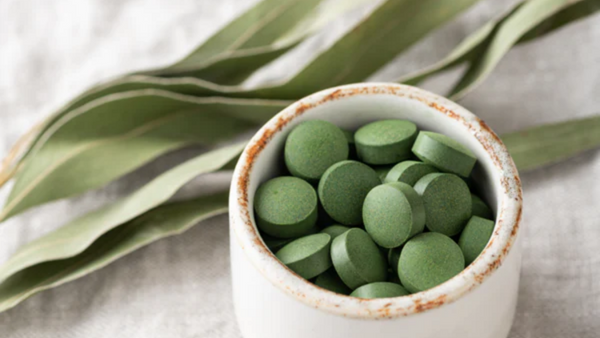
Detox miracle Chlorella: How does the microalgae affect the body?
Chlorella is a green freshwater algae known for its detoxifying properties. Chlorella also contains numerous nutrients such as protein, vitamins, minerals and antioxidants . It is said to have many positive effects on the body.
Let's take a closer look at Chlorella.
Ingredients of Chlorella
Chlorella contains protein, carbohydrates, fiber and fat. The algae is also rich in vitamins, minerals and especially chlorophyll. It also contains traces of beta-carotene and other carotenoids.
The nutrient content varies depending on the type and production process.
Nutrient
Content per g dry weight
Vitamin B1
0.03 – 0.05mg
Vitamin B2
0.3 – 0.5mg
Vitamin B3
2 – 3mg
Vitamin B6
0.1 – 0.2mg
Folic acid
20 – 40 µg
Vitamin B12
1.0 – 2.5 µg
Vitamin C
20 – 60mg
Vitamin E
0.5 – 3.0mg
magnesium
Approx. 15 mg
iron
Approx. 1 mg
potassium
Approx. 55 mg
Calcium
Approx. 30 mg
What does chlorella do?
Due to the numerous vitamins and minerals and the high chlorophyll content, chlorella is said to have various effects.
The effects of chlorella are still being scientifically studied, but there are some promising results.
Chlorella and the immune system
Chlorella contains many nutrients that are important for the immune system : vitamin C , zinc , iron and antioxidants. Antioxidants counteract oxidative stress and inflammation, which can weaken the immune system.
In one study, the concentration of antibodies in saliva increased after supplementing with chlorella. [1] This could mean that pathogens can be better fought off.
Chlorella for detoxification
Chlorella is known for its detoxifying effect . The chlorophyll contained in the algae is said to be primarily responsible for this. Chlorophyll is a natural detoxifying agent that binds harmful substances so that they can be excreted. Chlorella is also said to be able to bind heavy metals. Heavy metals can cause great damage to the body and are not easy to detoxify.
In initial studies, mercury levels decreased in a small group of subjects after taking chlorella. [2] However, this needs to be confirmed by further studies.
Chlorella and triglycerides
At These are so-called blood fats. They are much better markers for cardiovascular risk than cholesterol .
It is not understood in detail how chlorella lowers triglycerides. Scientists suspect that this is due to its high fiber content.
In initial studies, chlorella appeared to be able to lower triglycerides. [3] However, this needs to be confirmed in further studies.
Risks and side effects of chlorella
Chlorella is very safe and is usually well tolerated. In rare cases, chlorella can cause diarrhea, constipation, nausea, or headaches.
Due to the high chlorophyll content, the stool may turn green. However, this is completely harmless.
Buying Chlorella: What you should pay attention to
Unfortunately, chlorella is often heavily contaminated with toxins. Because it binds toxic substances so well, it also absorbs toxins from the environment. Chlorella preparations often contain increased levels of heavy metals.
When it comes to chlorella, you should therefore make sure that it comes from controlled cultivation. Ideally, it should be cultivated in a closed system so that it does not come into contact with pollutants from the environment. It is also referred to as "indoor chlorella".
High-quality preparations are also tested for harmful substances and do not contain any unnecessary additives.
As a small thank you for making it to the end of this article, we would like to offer you a 15% voucher for our Chlorella vulgaris .
Simply copy the voucher code “CHLORELLA15+V” and enter it at checkout.
Click here for the product
[1] https://www.ncbi.nlm.nih.gov/pmc/articles/PMC3182968/
[2] https://www.jstage.jst.go.jp/article/fts/5/3/5_117/_article/-char/ja/
[3] https://www.ncbi.nlm.nih.gov/pmc/articles/PMC4066283/

Critical Thyroid Nutrients That Are Often Overlooked
The thyroid is a critical metabolic organ. Thyroid hormones affect the body's energy consumption and heat production, heart rate, digestion, growth and development of tissues and organs. The thyroid is also important for regulating mood and cognition. A malfunction of the Thyroid causes many health problems such as metabolic disorders, weight changes, fatigue, hair loss, heart palpitations and many other symptoms.
To function optimally, the thyroid needs many different nutrients. The best known include iodine , selenium , B vitamins , iron, zinc .
However, there are other nutrients involved in thyroid function that are often overlooked. However, these are just as important. If they are not supplied sufficiently, problems with the thyroid will inevitably arise.
These critical nutrients include:
Diosgenin
Diosgenin is a steroid saponin that occurs naturally in yams . It is often used as a precursor for the production of steroid hormones such as estrogen, progesterone, DHEA (dehydroepiandrosterone), and testosterone.
Pregnant women with autoimmune thyroid diseases often have fewer symptoms during pregnancy and antibodies directed against the thyroid decrease. The binding capacity of the thyroid hormones is also increased - so the hormones work better. [1] , [2] This appears to be due to the increased progesterone level during pregnancy.
Diosgenin is converted into progesterone in the body and can probably help with thyroid diseases.
L-Tyrosine
L-tyrosine is an amino acid that serves as a precursor to the thyroid hormones thyroxine and triiodothyronine. [3] Without adequate amounts of tyrosine, the thyroid cannot produce enough thyroid hormones, which can lead to hypothyroidism.
Myo-Inositol
Myo-inositol is a sugar alcohol that is found in many plant-based foods such as fruit, vegetables, legumes and nuts. Inositol used to be classified as a B vitamin. However, we now know that the body can produce inositol itself. This is why inositol is now referred to as a vitaminoid, i.e. a vitamin-like substance.
Myo-inositol promotes the incorporation of iodine into thyroid hormones. If myo-inositol is missing, problems with the formation of thyroid hormones can occur. [4]
Vitamin A
Vitamin A is also an important nutrient for the function of the thyroid gland. Vitamin A is needed for the secretion of TSH. TSH is produced by the pituitary gland and stimulates the thyroid gland to produce hormones. [5]
Thyroid problems also often involve problems with the conversion of the provitamin beta-carotene into vitamin A. This can easily lead to a vicious circle: a lack of vitamin A can impair thyroid function, which in turn can further exacerbate the deficiency.
Copper
Copper is an essential trace element that is involved in many physiological processes. It also plays an important role in thyroid function.
Copper is required for the synthesis of the thyroid hormone T4. Copper is also indirectly involved in the function of TSH. [6] Without sufficient copper, thyroid hormones cannot be produced.
Iron
Iron is best known for being important for blood formation. But iron is also very important for the thyroid gland because it plays an important role in the production of thyroid hormones. [7]
Autoimmune diseases of the thyroid can in turn lead to iron deficiency. Autoimmune diseases are associated with chronic inflammation, which in turn inhibits iron absorption in the intestine. Another vicious circle that further exacerbates iron deficiency.
THYREO DAILY: The all-round package for the thyroid
THYREO DAILY by Viktilabs is a potent blend of essential nutrients tailored to the needs of the thyroid. It is a unique formula of yam root extract, L-tyrosine, copper, vitamin A, iron and myo-inositol.
As a small thank you for making it to the end of this article, we would like to offer you a 15% voucher for our THYREO DAILY thyroid complex .
Simply copy the voucher code “THYREO15+V” and enter it at checkout.
Click here for the product
--
-
-
[1] https://www.ncbi.nlm.nih.gov/pmc/articles/PMC4454767/
[2] https://www.liebertpub.com/doi/abs/10.1089/105072504323024561?journalCode=thy
[3] https://pubmed.ncbi.nlm.nih.gov/5327670/
[4] https://www.ncbi.nlm.nih.gov/pmc/articles/PMC6660248/
[5] https://pubmed.ncbi.nlm.nih.gov/23378454/
[6] https://biomedres.us/fulltexts/BJSTR.MS.ID.001336.php
[7] https://pubmed.ncbi.nlm.nih.gov/11099370/
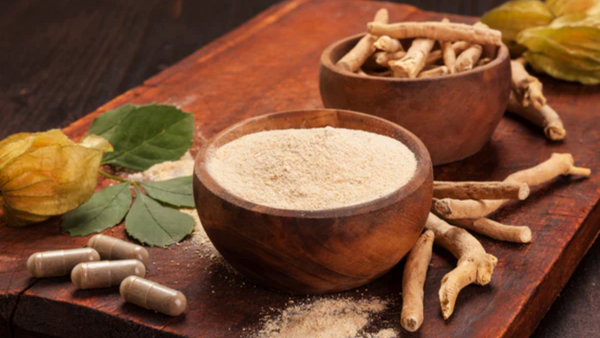
Ashwagandha: Effects, use and intake
Ashwagandha is an ancient medicinal plant in Ayurveda. It is used as a sedative and is said to help with sleep disorders and hypothyroidism.
What is the truth behind this? Can modern studies prove these effects?
What is Ashwagandha?
Ashwagandha belongs to the nightshade family. The plant originally comes from Asia, but can now also be found in Greece, Spain and Africa.
Ashwagandha is also known as Indian ginseng or winter cherry. The term Ashwagandha means something like “smell of the horse” because the root smells strongly of horse.
What does Ashwagandha do?
First of all, it is important to mention that the roots and leaves are used in dietary supplements, not the fruit, so the name "sleepberry" is somewhat misleading. The fruits are inedible and are poisonous due to their high alkaloid content.
The main active ingredients in Ashwagandha are withanolides. They are said to be responsible for Ashwagandha's stress-relieving, anti-anxiety and sleep-promoting properties. Ashwagandha also contains a number of other secondary plant substances such as alkaloids, flavonoids and tannins.
Ashwagandha for anxiety
Ashwagandha is said to have an anti-anxiety effect. In a study on subjects with anxiety disorders, symptoms improved within 6 weeks compared to the placebo group. [1]
For this reason, Ashwagandha could also potentially be helpful for panic attacks. However, this still needs to be investigated further.
Ashwagandha for stress
In one study, Ashwagandha was able to reduce the level of the stress hormone cortisol. At the same time, the level of DHEA increased. The DHEA hormone is an antagonist of cortisol. It is known as an anti-stress and anti-aging hormone.
In addition, stress sensitivity decreased, anxiety subsided, and insomnia improved. [2]
Ashwagandha for sleep disorders
Since Ashwandandha counteracts anxiety and could relieve stress, it is not surprising that it could also promote sleep. After all, sleep disorders, anxiety and too much stress usually go hand in hand.
In one study, subjects who took Ashwagandha fell asleep faster, woke up less often during the night, and had more restful sleep overall. [3]
The effect of Ashwagandha on memory and cognitive performance
Nerve cells in the brain are sensitive to free radicals and oxidative stress. Due to its antioxidant properties, Ashwagandha could protect nerve cells from oxidative stress.
In one study, reaction time, memory performance and attention improved after 8 weeks of taking Ashwagandha. [4]
Ashwagandha for high blood pressure
Ashwagandha also appears to have a positive effect on blood pressure. This is not surprising, as excessive stress and lack of sleep can cause high blood pressure.
In one study, Ashwagandha powder dissolved in milk was able to lower both diastolic and systolic blood pressure. [5]
Ashwagandha for hypothyroidism
Excessive stress and poor sleep can contribute to thyroid problems, which is why some studies have examined the effects of Ashwagandha on hypothyroidism.
In studies, Ashwagandha was able to increase the levels of the thyroid hormones T3 and T4, while also lowering TSH. [6] TSH is usually too high in hypothyroidism.
People with hyperthyroidism should be cautious with Ashwagandha.
Ashwagandha for inflammation
Ashwagandha appears to have strong anti-inflammatory effects and could therefore be helpful in inflammatory conditions.
In one study, Ashwagandha was able to relieve inflammatory knee pain within 12 weeks. [7] Ashwagandha may also help with osteoarthritis . However, this still needs to be investigated further.
Buying Ashwagandha: How to recognize a good product
Ashwagandha is often heavily contaminated with pesticides, so you should definitely pay attention to organic quality and choose a product that has been tested for harmful substances.
The best study data is available on root extract. That is why it makes sense to choose a preparation with root extract.
The withanolide content can vary greatly from preparation to preparation. In studies, daily doses of 15 - 30 mg are usually used. To be effective, the Ashwagandha preparation should have a withanolide content of this magnitude.
Risks and side effects of Ashwagandha
Ashwagandha is considered safe for human consumption and side effects are rare. However, diarrhea, vomiting and stomach irritation can sometimes occur.
There is insufficient data on the safety of Ashwagandha in pregnant and breastfeeding women. Therefore, you should not take it if you are pregnant or breastfeeding.
If you are taking blood pressure or blood sugar lowering medication, immunosuppressants, antidepressants and thyroid medication, you should definitely talk to your doctor before taking Ashwagandha, because in this case the dosage of the medication will need to be adjusted.
As a small thank you for making it to the end of this article, we would like to offer you a 15% voucher for our organic Ashwagandha .
Simply copy the voucher code “ASHWA15+V” and paste it at checkout.
Click here for the product
[1] https://pubmed.ncbi.nlm.nih.gov/21407960/
[2] https://www.researchgate.net/publication/242151370_A_Standardized_Withania_Somnifera_Extract_Significantly_Reduces_Stress-Related_Parameters_in_Chronically_Stressed_Humans_A_Double-Blind_Randomized_Placebo-Controlled_Study
[3] https://assets.cureus.com/uploads/original_article/pdf/22928/1612429213-1612429205-20210204-18204-14l5ome.pdf
[4] https://pubmed.ncbi.nlm.nih.gov/24497737/
[5] https://www.tandfonline.com/doi/abs/10.1080/09735070.2012.11886427
[6] https://www.liebertpub.com/doi/10.1089/acm.2017.0183
[7] https://www.sciencedirect.com/science/article/pii/S0975947616300298?via%3Dihub

Lower triglycerides with micronutrients?
Triglycerides are also called blood lipid levels and are an important marker for cardiovascular disease. Elevated triglycerides are also referred to as hypertriglyceridemia.
Triglycerides are produced in fat metabolism and increased triglycerides are caused by impaired fat and sugar metabolism.
The primary cause of elevated triglycerides is insulin resistance. Insulin resistance leads to what is known as metabolic syndrome. Metabolic syndrome is not only characterized by elevated triglycerides, but is also accompanied by other symptoms:
High blood pressure: systolic >130 mmHg, diastolic >80 mmHg
Increased waist circumference: > 102 cm for men, > 88 cm for women
Low HDL cholesterol: < 40 mg/dl in men, < 50 mg/dl in women
Elevated fasting blood sugar (late symptom): > 100 mg/dl
The triglyceride/HDL cholesterol ratio is also crucial. A TG/HDL ratio > 3 is an indicator of insulin resistance.
Diet plays an important role in lowering triglycerides. It is important to keep blood sugar as stable as possible and to avoid blood sugar spikes after meals. This helps to reduce insulin output, which counteracts insulin resistance . Reducing sugar and white flour is particularly important.
Micronutrients can also help lower triglycerides.
magnesium
Magnesium has important functions in fat metabolism and is involved in many enzymatic reactions. Magnesium is easily lacking in the diet and magnesium levels are particularly low in people with elevated triglycerides.
In one study, magnesium supplementation was able to lower triglycerides in diabetics. [1]
Vitamin D
A vitamin D deficiency is strongly associated with insulin resistance and appears to increase insulin resistance. Vitamin D deficiency is very common in Germany and people with insulin resistance and elevated triglycerides should pay particular attention to ensuring they have a good supply of vitamin D.
Omega-3
Omega-3 fatty acids appear to promote the breakdown of triglycerides. Studies show that taking omega-3 can lower triglycerides. The omega-3 fatty acid eicosapentaenoic acid (EPA) is particularly effective in this regard. [2]
In addition, omega-3 fatty acids have anti-inflammatory effects and can therefore probably counteract secondary diseases caused by high triglyceride levels.
By the way , omega-3 fatty acids do not lower total cholesterol ; they can even increase it. However, experts agree that total cholesterol is not a useful indicator of cardiovascular health. Triglycerides are far more important in this regard.
The German Society of Cardiology (DGK) recommends consuming 1 g of omega-3 fatty acids per day if triglycerides are elevated.
Niacin
Niacin ( vitamin B3 ) appears to be able to inhibit the production of triglycerides. Vitamin B3 can also increase HDL cholesterol, which has a vascular-protective effect.
Studies suggest that high doses of niacin may lower triglycerides. [3] However, this needs to be confirmed by further studies.
Vitamin C
Vitamin C is important for lipid metabolism and promotes the removal of triglycerides from the blood. In people with lipid metabolism disorders and vitamin C deficiency, taking vitamin C can lower triglycerides. [4]
L-Carnitine
L-carnitine has important functions in fat metabolism: it is needed for the transport of fatty acids into the mitochondria. It also counteracts insulin resistance. Since elevated triglycerides are a classic feature of insulin resistance, it is not surprising that L-carnitine can lower triglycerides, as some studies confirm. [5]
Curcumin
Curcumin, the active ingredient in turmeric root, also supports fat metabolism. In some studies with diabetes patients and people with metabolic syndrome, curcumin was able to lower triglycerides. However, the study results are not clear. This could be because curcumin does not have good bioavailability and is often not well absorbed.
Conclusion: Nutrients are important for fat metabolism
Many nutrients play an important role in fat metabolism. People with insulin resistance and elevated triglycerides should pay particular attention to ensuring they have a good supply of these nutrients.
WE HAVE GONE YOU A 10% VOUCHER FOR OUR
VITAMIN D , TURMERIC EXTRACT , VITAMIN C , L-CARNITINE ,MAGNESIUM AND OMEGA-3
PROVIDED AND HOPE TO BRING YOU JOY WITH IT.
SIMPLY COPY THE FOLLOWING COUPON CODE
AND ENTER IT AT CHECKOUT:
TRIGLY+V10
TO THE PRODUCTS
[1] https://pubmed.ncbi.nlm.nih.gov/32468224/
[2] https://pubmed.ncbi.nlm.nih.gov/29397253/
[3] https://pubmed.ncbi.nlm.nih.gov/22085343/
[4] https://pubmed.ncbi.nlm.nih.gov/18160753/
[5] https://pubmed.ncbi.nlm.nih.gov/33510873/
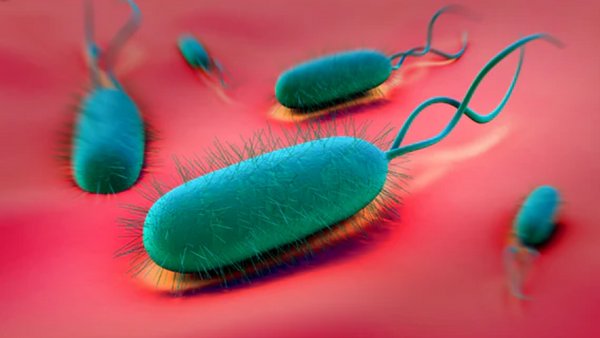
Supporting Helicobacter pylori therapy with micronutrients
Approximately 5% of children and 24% of adults in Germany are infected with Helicobacter pylori . The infection causes inflammation of the stomach lining (gastritis) and gastrointestinal complaints.
The bacteria produce ammonia and other cell toxins that irritate the stomach lining. As a result, it is no longer protected from stomach acid.
The infection is often asymptomatic, but can also cause considerable discomfort and lead to gastritis.
Typical symptoms include loss of appetite, feeling of fullness, nausea, belching, pain in the breastbone area and bad breath.
Unfortunately, an infection with Helicobacter pylori often has consequences. It can cause stomach and duodenal ulcers. In rare cases, the infection can also lead to stomach cancer.
A Helicobacter pylori infection is traditionally treated with antibiotics, which eliminate the bacteria. Unfortunately, infections with antibiotic-resistant strains have become more common recently. In this case, several antibiotics must be combined to fight the bacteria. The therapy is also supplemented with proton pump inhibitors (PPIs). But even then, the therapy is not always successful.
Micronutrients can support Helicobacter pylori therapy.
Vitamin D
Vitamin D is essential for the immune system. It also has an anti-inflammatory effect and can therefore probably counteract inflammation of the gastric mucosa.
A vitamin D deficiency also increases the susceptibility to Helicobacter pylori infection.
The supply of vitamin D also seems to affect the success of the therapy: people in whom Helicobacter pylori can be successfully eliminated have higher vitamin D levels than people in whom the therapy is not successful. [1]
Curcumin
Curcumin is the active ingredient in turmeric root. It is an effective antioxidant that counteracts oxidative stress. It also has anti-inflammatory properties and can therefore probably reduce the risk of gastritis.
In one study, adjunctive therapy with curcumin was able to reduce markers of oxidative stress. [2]
Grapefruit seed extract
Flavonoids are secondary plant substances that have an antioxidant effect and thus counteract oxidative stress. [3] Helicobacter pylori causes oxidative stress.
Flavonoids are found in many fruits and vegetables. Grapefruit seed extract is particularly rich in flavonoids because they are present in concentrated form.
Probiotics
Helicobacter pylori displaces other bacteria that can survive in the stomach lining. Probiotic bacteria can in turn displace Helicobacter pylori . In addition, certain bacteria such as bifidobacteria and lactobacilli produce antibiotic substances.
Probiotics are also very valuable in antibiotic therapy against Helicobacter pylori . They protect the intestinal flora that is attacked by the antibiotics and help to rebuild it.
Studies have shown that probiotics can increase the success of Helicobacter pylori therapy. [4]
Vitamin C and Vitamin E
Vitamin C and vitamin E are important antioxidants in the body that scavenge free radicals and thus counteract inflammation caused by infections.
Vitamin C can also weaken the acid protection of Helicobacter pylori . Vitamin C inhibits the urease enzyme with which the bacterium produces harmful ammonia. [5]
Vitamin C is also important for the immune system and helps us protect ourselves against all kinds of infections.
Conclusion: Antioxidant nutrients play an important role in therapy
Helicobacter pylori causes significant oxidative stress and inflammation in the stomach lining. Antioxidants can counteract this. In addition, nutrients and probiotics that are important for the immune system can support Helicobacter pylori therapy.
WE HAVE GONE YOU A 10% VOUCHER FOR OUR
VITAMIN D , TURMERIC EXTRACT , VITAMIN C AND GRAPEFRUITEN EXTRACT
PROVIDED AND HOPE TO BRING YOU JOY WITH IT.
SIMPLY COPY THE FOLLOWING COUPON CODE
AND ENTER IT AT CHECKOUT:
HELIPY+V10
TO THE PRODUCTS
[1] https://faseb.onlinelibrary.wiley.com/doi/abs/10.1096/fasebj.31.1_supplement.1067.6
[2] https://www.scielo.br/j/ag/a/Tmx87PkmjQ3HFBnt9Ky8S6R/?lang=en
[3] https://www.ncbi.nlm.nih.gov/pmc/articles/PMC8329489/
[4] https://www.ncbi.nlm.nih.gov/pmc/articles/PMC6151681/
[5] https://pubmed.ncbi.nlm.nih.gov/22543844/
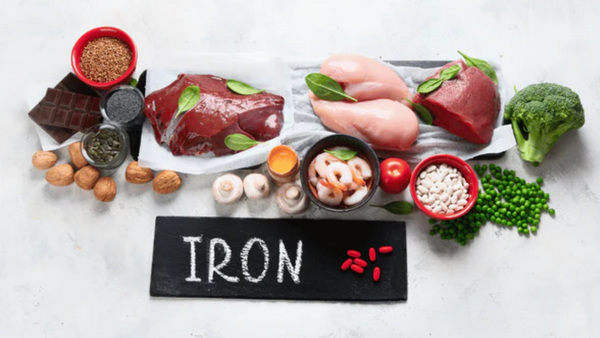
Iron: An essential trace element that is often lacking
Iron is an essential nutrient that we must consume through our diet. Unfortunately, iron is often lacking in our diet. The National Consumption Study II found that 58% of women and 14% of men do not consume the recommended amount of iron. [1]
In this article, you will learn why iron is so important, how to recognize a deficiency and how you can meet your iron needs.
What is iron?
Iron is a trace element that the body only needs in very small amounts. The daily requirement is around 10 to 15 mg, depending on age and gender. [2]
Iron occurs in foods in two different forms: heme iron and non-heme iron. The body can absorb and use heme iron much better than non-heme iron because heme iron has a higher bioavailability.
Heme iron is found in animal foods, while plant foods mainly contain non-heme iron.
What does iron do in the body?
Iron is a component of hemoglobin, the blood pigment that gives our blood its red color. As part of hemoglobin, iron is needed for blood formation and oxygen transport. [3]
But iron has many other functions. It is involved in the construction of nerve cells and is therefore important for cognitive function and memory. [4]
Iron also has important functions in energy metabolism, as many enzymes in energy metabolism contain iron.
A good supply of iron is also needed for the immune system. [5]
Iron is also involved in the formation of proteins and therefore has important functions in cell division.
The European Food Safety Authority confirms the following health claims for iron: [6]
Iron contributes to normal cognitive function
Iron contributes to normal energy metabolism
Iron contributes to the normal formation of red blood cells and hemoglobin
Iron contributes to normal oxygen transport in the body
Iron contributes to the normal functioning of the immune system
Iron helps reduce tiredness and fatigue
Iron has a function in cell division
These are the symptoms of iron deficiency
Iron deficiency manifests itself through the following symptoms:
paleness
fatigue
Difficulty concentrating
shortness of breath
Brittle hair and nails
Cracked and dry skin
Severe iron deficiency leads to anemia (iron deficiency anemia). This manifests itself in: [7]
Severe fatigue
Cracked corners of the mouth
Headache
Shortness of breath
Heart palpitations
Hearing and vision problems
Causes of iron deficiency
People with increased iron requirements are at high risk for iron deficiency. These include menstruating women, pregnant and breastfeeding women , growing children and adolescents, and competitive athletes .
People who eat a diet low in iron also have a high risk of iron deficiency. Since animal heme iron has a significantly better bioavailability than plant-based non-heme iron, vegans and vegetarians are often affected by iron deficiency.
In addition, impaired iron absorption can lead to iron deficiency. Chronic inflammatory bowel diseases, for example, can significantly impair iron absorption.
The consumption of certain foods can also hinder iron absorption and promote iron deficiency. [8]
This includes:
caffeine
Phytic acid in cereals and legumes
Oxalic acid from green leafy vegetables, rhubarb and cocoa
Phosphates in ready meals and lemonades
Calcium
Foods with the highest iron content
Iron is found in many foods. Here are the best sources of iron: [9]
Cocoa: 13.9 mg/100 g
Hemp seeds: 7.95 mg/100 g
Liver: 7.4 mg/100 g
Cashews: 6.68 mg/100 g
Squid: 6.02 mg/100 g
Goose: 5.91 mg/100 g
Oysters: 5.78 mg/100 g
Beef: 5.46 mg/100 g
Hazelnuts: 4.7 mg/100 g
Cover your iron needs with iron supplements
If the iron requirement cannot be met through food, taking iron supplements makes sense.
You can tell that an iron supplement is good because it does not contain any unnecessary additives such as colorings, sweeteners, binding agents, release agents and artificial preservatives. Also make sure that it is made in Germany. Iron supplements should also contain vitamin C , as vitamin C significantly improves the absorption of iron. [10]
Iron is best absorbed on an empty stomach and should be taken 2-3 hours before eating.
Conclusion: Iron deficiency is widespread
Iron deficiency is one of the most common nutritional deficiencies. Women who do not consume much iron through their diet are particularly affected by iron deficiency. If the iron requirement cannot be met through food, taking iron supplements can be useful.
As a small thank you for making it to the end of this article, we would like to offer you a 15% voucher for our iron from curry leaves .
Simply copy the voucher code “EISEN15+V” and enter it at checkout.
Click here for the product
[1] https://www.mri.bund.de/fileadmin/MRI/Institute/EV/NVSII_Final Report_Part_2.pdf
[2] https://www.dge.de/forschung/referenzwerte/eisen/?L=0
[3] https://www.ncbi.nlm.nih.gov/pmc/articles/PMC3999603/
[4] https://pubmed.ncbi.nlm.nih.gov/20100340/
[5] https://www.ncbi.nlm.nih.gov/pmc/articles/PMC3173740/
[6] https://eur-lex.europa.eu/LexUriServ/LexUriServ.do?uri=OJ:L:2012:136:0001:0040:de:PDF
[7] https://www.ncbi.nlm.nih.gov/books/NBK448065/
[8] https://pubmed.ncbi.nlm.nih.gov/21462105/
[9] https://nutritiondata.self.com/foods-000119000000000000000-w.html
[10] https://pubmed.ncbi.nlm.nih.gov/6940487/

Micronutrients for gastritis (inflammation of the stomach lining)
Gastritis is an inflammation of the stomach lining, which causes stomach pain, a feeling of fullness and nausea.
There are three types of gastritis: types A, B and C. [1]
Type A is an autoimmune disease. Immune cells attack the stomach lining. Type A is the rarest form of gastritis and occurs in about 5% of those affected.
Type B is a bacterial gastritis. It is usually caused by the stomach germ Helicobacter Pylori . 80-90% of gastritis cases are type B.
Type C is caused by chemical substances. Drugs that damage the stomach lining, such as aspirin, cortisone, and excessive alcohol consumption can cause type C. Type C accounts for approximately 10% of gastritis cases.
Acid-reducing medications are often used to treat gastritis. This is because an inflamed stomach lining cannot protect itself from acid and is further damaged by acid. Proton pump inhibitors reduce the production of stomach acid and antacids neutralize stomach acid.
Micronutrients can support the treatment of gastritis.
Vitamin B12
The gastric mucosa produces the so-called intrinsic factor (IF), which is important for the absorption of vitamin B12 . Since the gastric mucosa is damaged in gastritis, it hardly produces any intrinsic factor. This disrupts the absorption of vitamin B12 and in the long term there is a high risk of vitamin B12 deficiency.
Vitamin B12 deficiency manifests itself in neurological disorders and psychological problems. Other symptoms include lack of energy, extreme tiredness, memory problems and fatigue.
The risk of vitamin B12 deficiency is particularly high in chronic gastritis type A. This is because immune cells attack the parietal cells of the gastric mucosa, which produce the intrinsic factor. [2]
Since vitamin B12 (together with vitamin B6 and folic acid) is needed to break down homocysteine , a poor supply of vitamin B12 also leads to increased homocysteine levels.
If you have gastritis, you should ensure you have a good supply of vitamin B12 and other B vitamins.
Omega-3 fatty acids
Omega-3 fatty acids have anti-inflammatory properties and counteract chronic inflammation, so they may also reduce inflammation caused by gastritis. [3]
Omega-3 fatty acids can also inhibit the growth of Helicobacter Pylori .
Vitamin C
Vitamin C is an important antioxidant in the body that scavenges free radicals and counteracts oxidative stress. Oxidative stress also promotes inflammation.
People with gastritis have lower vitamin C levels than healthy people. Vitamin C levels also correlate with the severity of gastritis: the poorer the vitamin C levels, the more severe the condition. [4]
Gastritis is also associated with oxidative stress. Therefore, if you have gastritis, you should make sure you consume enough vitamin C.
Grapefruit seed extract
Grapefruit seed extract is rich in secondary plant substances such as flavonoids and polyphenols. These have an antioxidant effect and can protect the stomach lining from oxidative stress. [5]
Probiotics
The stomach is normally very acidic, which means that most bacteria cannot survive there. Gastritis affects the composition of bacteria in the stomach. The intestinal flora is also indirectly changed. An unfavorable intestinal flora promotes inflammation and can therefore worsen the consequences of gastritis. [6]
Probiotic bacteria help to build a healthy intestinal flora and promote gastrointestinal health.
Conclusion: Vitamin B12 and antioxidant nutrients should not be missing in gastritis
If you have gastritis, you are at high risk for vitamin B12 deficiency, which should be prevented. Antioxidant and anti-inflammatory nutrients can help protect the stomach lining.
WE HAVE GONE YOU A 10% VOUCHER FOR OUR
OMEGA-3 , VITAMIN B12 , VITAMIN C AND GRAPEFRUITEN EXTRACT
PROVIDED AND HOPE TO BRING YOU JOY WITH IT.
SIMPLY COPY THE FOLLOWING COUPON CODE
AND ENTER IT AT CHECKOUT:
GASTRITIS+V10
TO THE PRODUCTS
[1] https://www.ncbi.nlm.nih.gov/books/NBK544250/
[2] https://pubmed.ncbi.nlm.nih.gov/18609169/
[3] https://www.ncbi.nlm.nih.gov/pmc/articles/PMC4538587/
[4] https://www.ncbi.nlm.nih.gov/pmc/articles/PMC3874117/
[5] https://pubmed.ncbi.nlm.nih.gov/16425415/
[6] https://www.ncbi.nlm.nih.gov/pmc/articles/PMC6151681/
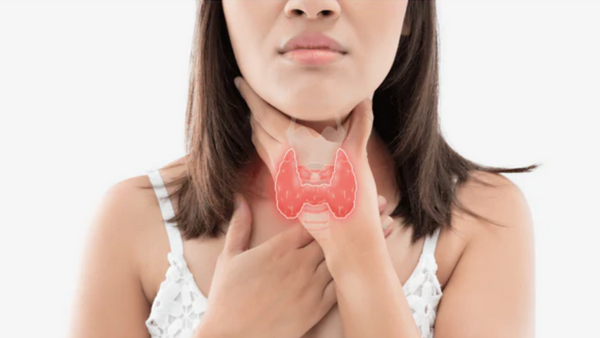
Graves’ disease: Supporting treatment with micronutrients
Graves' disease is an autoimmune thyroid disease. The body's own antibodies attack the thyroid tissue, causing hyperthyroidism.
The causes of Graves' disease are not well understood. Pregnancy, smoking, stress and viral infections are considered possible triggers. Genetic predisposition probably also plays a role.
The thyroid regulates energy metabolism. If it is overactive, energy metabolism runs at full speed. Graves’ disease is characterized by the following symptoms:
Sleep disorders
nervousness
Light sweating and heat intolerance
Weight loss
Heart palpitations, high blood pressure and cardiac arrhythmias
Shaky hands
In women: menstrual disorders, in men: impotence
Mood swings
Hair loss
Many sufferers also experience visible bulging of the eyes. This is due to inflammation in the eye socket and changes in the connective tissue of the eye.
The thyroid gland can also become enlarged. This is known as goiter or struma. This causes a feeling of pressure and tightness in the throat when swallowing and breathing.
Graves' disease is traditionally treated with medication that inhibits the production of thyroid hormones. These are called antithyroid drugs. The hyperthyroidism often subsides after the medication is stopped.
If antithyroid drugs do not help in the long term, radioiodine therapy is usually carried out. The radioactive iodine destroys thyroid tissue, which reduces the production of thyroid hormones. However, there is a risk of slipping from hyperthyroidism to hypothyroidism.
Micronutrients can support the treatment of Graves’ disease.
selenium
Selenium is important for thyroid function because it is a component of enzymes needed to produce thyroid hormones. Selenium also helps reduce oxidative stress in the thyroid. Antioxidant enzymes that fight free radicals and counteract oxidative stress contain selenium.
Patients with Graves' disease often do not have sufficient selenium. Initial studies suggest that selenium could reduce the concentration of antibodies against thyroid tissue in Graves' disease and improve the quality of life. [1]
Vitamin D
Vitamin D regulates the immune system and counteracts inflammation. People with Graves' disease are more likely to suffer from vitamin D deficiency than healthy people. Vitamin D deficiency is also a risk factor for Graves' disease and other autoimmune diseases. [2]
In a small study, anti-thyroid antibodies decreased after taking vitamin D. However, this needs to be confirmed in further studies.
Antioxidants
People with hypothyroidism experience increased oxidative stress in the thyroid gland. This is also reflected in the blood: Due to the increased need for antioxidants, the levels of antioxidants such as coenzyme Q10 and vitamin E are reduced. [3]
Patients with Graves’ disease should therefore pay particular attention to ensuring they have a good supply of antioxidants.
The body’s most important antioxidants include:
zinc
Vitamin E
Vitamin C
selenium
Coenzyme Q10
Secondary plant substances such as curcumin and OPC also have antioxidant effects and can counteract oxidative stress. [4]
In a small study, an antioxidant mixture of manganese, zinc , copper , selenium , beta-carotene, vitamin C and vitamin E was able to reduce oxidative stress in Graves' disease. [5]
Conclusion: Essential nutrients should not be missing in Graves’ disease
A lack of certain nutrients appears to promote the development of Graves' disease. Those affected also have an increased need for antioxidants, which are often lacking. People with Graves' disease should ensure they have a good supply of these nutrients.
WE HAVE GONE YOU A 10% VOUCHER FOR OUR
COENZYME Q10 , VITAMIN D , VITAMIN C , ZINC , TURMERIC , OPC AND SELENIUM
PROVIDED AND HOPE TO BRING YOU JOY WITH IT.
SIMPLY COPY THE FOLLOWING COUPON CODE
AND ENTER IT AT CHECKOUT:
BASEDOW+V10
TO THE PRODUCTS
[1] https://www.ncbi.nlm.nih.gov/pmc/articles/PMC7033064/
[2] https://www.endocrine-abstracts.org/ea/0044/ea0044p257
[3] https://pubmed.ncbi.nlm.nih.gov/10598831/
[4] https://pubmed.ncbi.nlm.nih.gov/31593984/
[5] https://pubmed.ncbi.nlm.nih.gov/18605962/

Micronutrients for fibromyalgia: can they relieve pain?
Fibromyalgia is a pain disorder that mainly affects women between the ages of 40 and 60.
The pain is long-lasting (longer than 3 months), affects several parts of the body and severely limits the quality of life. The pain is often perceived as muscle pain.
In addition to pain, people with fibromyalgia often suffer from sleep disorders, concentration problems, tiredness, exhaustion and depressive moods. Hypersensitivity to touch, smells and noises also often occurs.
The cause of fibromyalgia is not clearly understood, but certain factors seem to promote the disease:
Mitochondrial dysfunction (mitochondriopathy)
stress
Depression
Inflammatory diseases and rheumatism
Smoking, obesity, lack of exercise and other bad lifestyle habits
The therapy involves moderate physical activity such as cycling, swimming and walking. Relaxation techniques, yoga and behavioral therapy can also have a positive effect on the symptoms.
The medications used are mainly antidepressants and anti-anxiety drugs.
In addition, micronutrients can support the treatment of fibromyalgia.
Coenzyme Q10
Coenzyme Q10 is needed to generate energy in the mitochondria – the power plants of our cells. Coenzyme Q10 is also an important antioxidant in the body.
People with fibromyalgia often have low levels of coenzyme Q10. A small study suggests that taking coenzyme Q10 may actually be helpful for fibromyalgia. Pain decreased and coenzyme Q10 seemed to have a positive effect on sleep quality and fatigue. [1]
L-Carnitine
L-carnitine is important for the function of the mitochondria. It is needed for the transport of fatty acids into the mitochondria. L-carnitine also supports the detoxification of the mitochondria. L-carnitine also has an antioxidant effect and can protect nerve cells from oxidative damage.
A carnitine deficiency can cause muscle pain. In one study, L-carnitine was able to relieve muscle pain. General well-being and mental health also improved. [2]
Vitamin C
Fibromyalgia patients who consume a lot of vitamin C through their diet have fewer symptoms than those who consume less vitamin C. People with fibromyalgia also have high levels of oxidative stress and free radicals. [3]
It is therefore reasonable to assume that those affected could benefit from taking vitamin C.
Omega-3 fatty acids
Omega-3 fatty acids have anti-inflammatory effects and can relieve inflammatory pain. [4] In one case study, fibromyalgia pain also subsided after taking omega-3 fatty acids.
Vitamin D
Vitamin D has an immune-regulating and anti-inflammatory effect. People with fibromyalgia are particularly often affected by vitamin D deficiency. The severity of the disease also seems to correlate with the extent of the deficiency.
Smaller studies suggest that vitamin D may reduce pain and improve depressive mood in fibromyalgia. [5] However, further research is needed.
magnesium
Magnesium is essential for muscle and nerve function. It also has antispasmodic properties and can relieve muscle cramps. It can also counteract pain because it inhibits a pain-promoting neurotransmitter. Magnesium also plays an important role in energy production in the mitochondria.
People with fibromyalgia often do not have enough magnesium. In addition, magnesium deficiency in fibromyalgia appears to increase symptoms such as fatigue.
In a small study, magnesium was able to relieve pain. [6] However, more research is needed.
Conclusion: Fibromyalgia lacks many nutrients
People with fibromyalgia are often not getting enough essential nutrients. A good supply of anti-inflammatory nutrients in particular seems to be important for fibromyalgia and can potentially help to alleviate the symptoms.
WE HAVE GONE YOU A 10% VOUCHER FOR OUR
OMEGA-3 , COENZYME Q10 ,MAGNESIUM , VITAMIN D , VITAMIN C AND L-CARNITINE
PROVIDED AND HOPE TO BRING YOU JOY WITH IT.
SIMPLY COPY THE FOLLOWING COUPON CODE
AND ENTER IT AT CHECKOUT:
FIBRO+V10
TO THE PRODUCTS
[1] https://pubmed.ncbi.nlm.nih.gov/24525646/
[2] https://pubmed.ncbi.nlm.nih.gov/25786048/
[3] https://pubmed.ncbi.nlm.nih.gov/24373371/
[4] https://pubmed.ncbi.nlm.nih.gov/17335973/
[5] https://pubmed.ncbi.nlm.nih.gov/29911760/
[6] https://pubmed.ncbi.nlm.nih.gov/24525646/












